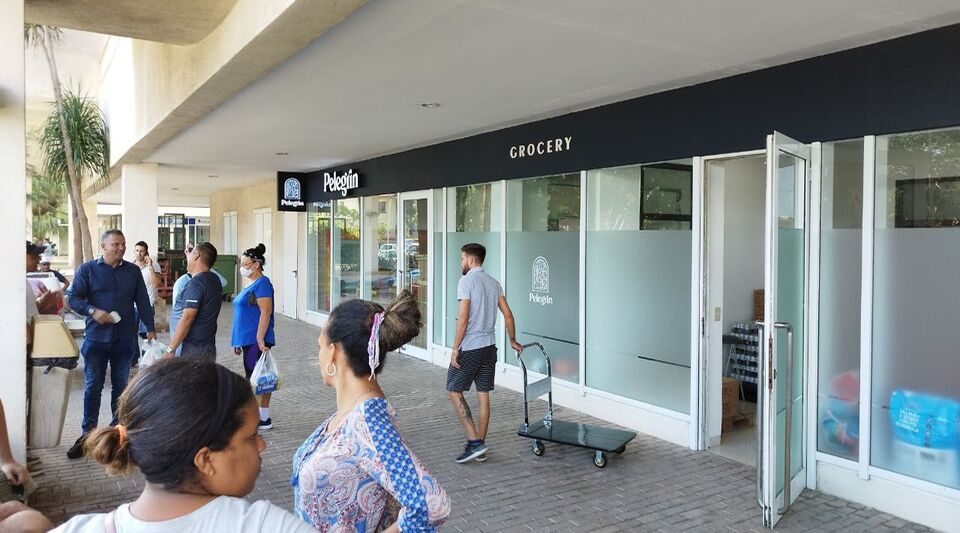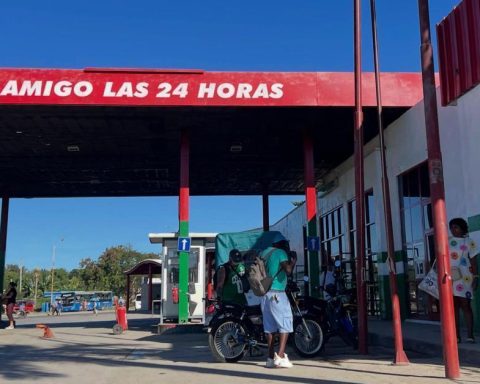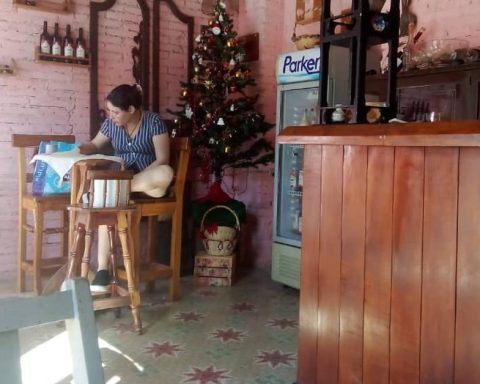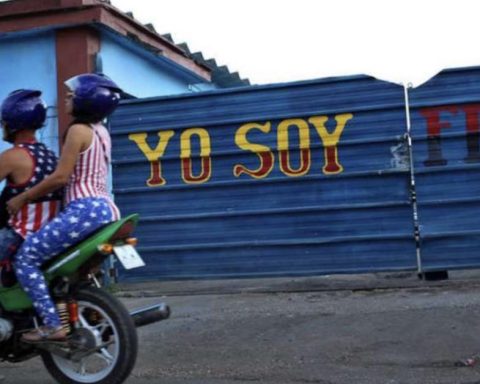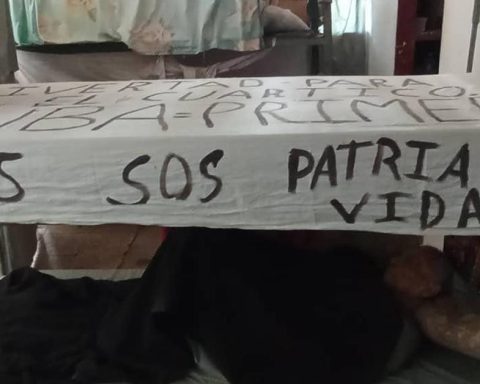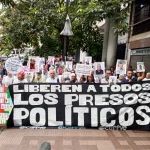The English word “Grocery” reads on the façade and the line extends to the outskirts of the recently opened small private market on the ground floor of the Miramar Trade Center in Havana. Between airline offices, foreign companies and bank branches, the Pelegrin store, managed by a MSME, brought together more curious people than potential customers this Monday.
“And that milk? How much is it worth?” a woman asked a young man who left the premises with two tetrapaks of the product that bore a seal with the colors of the French flag and the clarification “Entier”. The answer of “500 pesos each” was enough for a murmur of indignation to run through the line. Despite the high price, no one moved from the place until they could access the market.
“I found out because I read on the internet that they had opened this MSME,” a woman who bought some vanilla-flavored sweet cookies explained to 14ymedio. “They told me that it was assorted but it’s not that bad. There are more than in the state stores in Cuban pesos but it’s not that it’s wonderful either. I think they have gone too far with the zeros on the right,” he said about the prices .
Small private companies dedicated to the sale of imported food have been noted in recent months in Cuba with merchandise that they bring from countries in the area, such as Panama, Colombia, Mexico or the Dominican Republic. Given the low productivity of the national industry, beers, malts, soft drinks and sweets from foreign brands trace the path of private commerce.
The phenomenon has not escaped the popular humor that has already reinterpreted the acronyms that make up micro, small and medium-sized companies
The phenomenon has not escaped the popular humor that has already reinterpreted the acronyms that make up micro, small and medium-sized companies [mipyme] with the acronym for markets of imports at high and manichaed prices [manejados] For the state. So far, the new form of management, which is presented in the official discourse as the key to getting out of the crisis, seems to have more to do with resale than with the production of goods.
Hence, no one seemed surprised this Monday at Pelegrin that 280-gram packages of soda crackers cost 335 pesos. The price did not cause much fuss because “the self-employed are more expensive,” stated a man who calculated that each one contains 15 envelopes with three cookies inside, at “22 pesos each packet and 7 each cookie.”
The store has a small area to serve customers, but behind the windows you can see a large warehouse where they accumulate the merchandise they sell. “The cafeteria on the ground floor of my house in Centro Habana is better stocked but it is true that it is a little cheaper here, but getting to this place already costs the difference,” said a man who was “by chance” at Miramar Trade Center looking for a plane ticket to Panama.
Among Pelegrin’s most expensive products, a 35-pound bag of dry dog food stands out, a mixture of salmon and potato, for a whopping 20,600 pesos. The product, from the Kirkland brand that is marketed by the international hypermarket chain Costco, bears the “Made in USA” letterhead and has been imported to a country where official stores, specialized in the sector, have not sold pet food for more than one year.
The Siberian husky printed on the packaging seemed to look with a certain arrogance this morning at the customers who opened their mouths in front of the market counter when they learned the price, more than triple what it costs in the stores of the American chain, if calculated on the basis of the official exchange rate of the dollar in Cuba. “This is an animal, never better said,” concluded an old woman.
“My sato dog does not look like that, nor am I going to spend half a year of my salary to buy him that food. Let him continue eating leftovers and whatever appears,” snapped another client who, in the end, only bought a can of Coca Cola imported for 155 pesos. “I think they put ‘Grocery’ on the outside so people won’t mistake it for a state store,” he added before leaving the store.
The use of the word in English, instead of its Spanish variants of “grocery store” or “bodega”, is not accidental. Both Spanish terms are marked on the Island by the negative shadow that more than 60 years of rationed markets and centralism have cast over trade. The term foreigner could seek to move away from what is known and evoke another type of bazaar that is more assorted and efficient.
But whatever it is called and in whatever language it is, Pelegrin has prices that triple those of a box of milk in Madrid or that of pet food in Miami. Like other stores run by MSMEs, it seems to be aimed at a social class with enough money to spend around 180 pesos on a tiny glass of yogurt, the daily salary of an engineer.
________________________
Collaborate with our work:
The team of 14ymedio He is committed to doing serious journalism that reflects the reality of deep Cuba. Thank you for accompanying us on this long road. We invite you to continue supporting us, but this time becoming a member of our newspaper. Together we can continue transforming journalism in Cuba.
